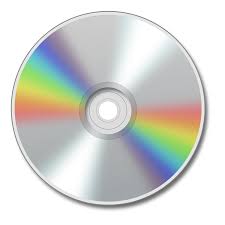The History of the Compact Disc (CD)
The history of the compact disc (CD) dates back a few decades now. Development into the creation of the CD first began back in 1974, through the company Phillips. Phillips also worked with Sony to help create what would eventually become the CD. Phillips and Sony were focused on researching and developing a product that would make listening to music easier compared to the market leaders of vinyl records and cassette tapes. After years of research, Phillips finally created the first working model of the compact disc in 1979. The original prototype was 11.5 cm which was then changed to 12 cm when the product finally became available to the public in 1982. The first CD available to the public was in 1982 and it was Abba's album The Visitors. Currently the greatest selling CD of all time is the Eagles' 1976 Greatest Hits which has sold over 38 million copies.
As the sales of CDs grew as the 80's progressed, the market share of vinyl records and cassette tapes began to shrink more and more.
Around the late 80s and especially into the early 90s, it was clear that CD was the market leader and vinyl records and other older products had fallen out of the leadership position in the market. But like all new technologies, they have a rise and then they begin to fall off the top of their market. When the internet began to pick up more steam and more products and services became available through the internet, the new era of music changed the music scene once again. When streaming services became available to the public, platforms such as iTunes
which first debuted in 2001 began the decline for the CD. When the CD first debuted to the public in the early 1980s, it offered something different to consumers. To be able to a smaller disc compared to a vinyl record that took up much less space in storage, was stronger and did not break as easy and ultimately led to other inventions that played it such as the boombox compared to just an old, traditional record player. Now the same thing was happening to the CD starting in the early 2000s, when streaming services became available for the first time you could have all your music downloaded onto your computer or iPod and just carry that around instead of a boombox and a huge amount of storage for CDs.
Similarly to any new ground breaking technology though, it took some time since the release of online platforms to really chip into the CD's lead in the market. However, it eventually did and since 2008 CD's sales have dropped by 10 million every year since then, that is a drop of 130 million sold every year up until the present year of 2021.
The compact disc has the honor and distinction of being the last true leader on the music market before the internet. Compact discs were revolutionary of basically taking vinyl records and making them smaller, stronger, and easier to use. I personally am not a huge fan of CDs compared to other forms of listening to my favorite music. It would seem strange for someone my age who was born and raised in the 2000s to not be a huge fan of the CD considering their sales did actually peak in my birth year of 2002. CDs took away the culture of going to a record shop as well as appreciating the artwork associated with the covers. This was a huge subsection of the music culture in the West for decades and that was removed due to the CD. To be fair, you still went to a physical store and bought CDs in a similar way to records, but it just wasn't the same culture or vibe associated with the vinyl record crowd.
Recently I was in an antique store while back home in Pennsylvania for Thanksgiving, and I noticed CDs are now being considered an antique! Perhaps I am getting older and haven't realized that yet but it is just crazy to see something that I remember being so mainstream as a kid, which I am still a teenager by the way, is now considered an antique item. It goes to show how fast and how strong the streaming services and the age of the internet move technology and that is a testament to how fast the rate of technology is only going to continue.






No comments:
Post a Comment